Evolution of Democracy in India: Time for introspection
“Democracy must provide equal opportunities to everyone irrespective of caste, creed or economic status. But, unfortunately we have become a nation of haves and have-nots, of extreme wealth and extreme poverty. Is that what we wanted?
Dr. B S Ajaikumar, Executive Chairman, HCG
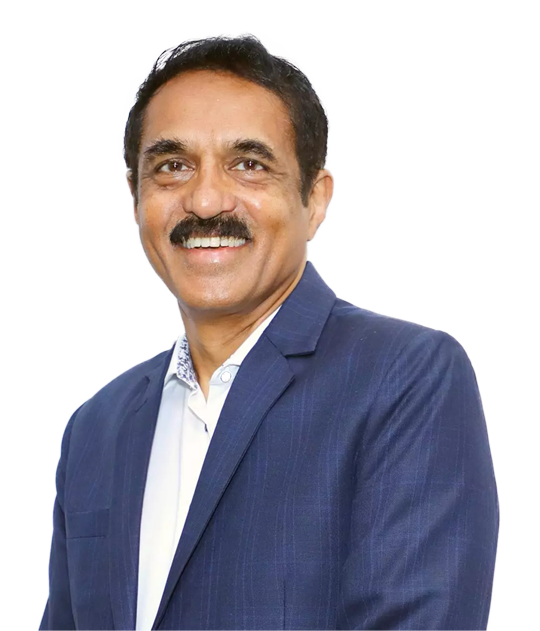
The whole debate around democracy is not about what’s right or what’s wrong. Truth, as they say, is multi-layered and we are here to collectively assemble and brainstorm on diverse pieces of information on democracy in India, and chart a potential course for the future, which may not be foolproof but good enough to help us move up the value chain of democracy.
I begin with a quote from John Adams: “Remember, democracy never lasts long. It soon wastes, exhausts, and murders itself. There never was a democracy yet that did not commit suicide.” That incisive quote shows us one way of looking at democracy and its fragile and self-consuming texture. Having said that, in the last several years since independence, we must acknowledge the bright side of democracy that we adopted based on the British model of governance. It helped us break the shackles of colonial hangover and bind together disparate provinces under one nation we call India. The people of my generation grew up under the socialist influence of absolute state control over resources to ensure equal opportunities for one and all to prosper socially, culturally, and economically. However, we did witness some heavy turbulence in the 70s when India grappled with abject poverty and famine, which was followed by the green revolution which ushered in a new era. We survived and even flourished to the extent of taking the world by surprise. All this while, we were hardly exposed to any form of technology. I vividly remember having discovered television only after immigrating to the United States in 1975. We had to wait for years to get a telephone line or own a car. All the same, we are a very tolerant society at heart and presumed the long wait was for our larger good, and hence we came to terms with this gradual prosperity rooted in a steep curve. Then, in a remarkable twist, the economy opened up in the late 80s which paved the way for the wave of liberalization under the then PM Narasimha Rao which saw private enterprises playing a key role in effecting the economic prosperity of the nation.
Our principle belief was that democracy will ensure that this prosperity will benefit one and all through equal opportunities, irrespective of differences like caste, creed, and economic status. But the way things transpired, and having seen the reality at the grassroots from close quarters in some of the rural pockets I visited, it is indeed a tragedy of epic proportions that we have become a nation of haves and have-nots, with extremely wealthy and privileged people and extremely poor and deprived people co-existing in respective water-tight compartments. Is this what our democracy was supposed to bring about? This is clearly the time for introspection, where democracy and its secular character are being questioned in the wake of rising fundamentalism and parochialism. The 900 million have-nots of our population are struggling to make ends meet while the privileged half is amassing wealth in unimaginable fashion. Worse, we have a parallel system of inheritance at play where a child born of privileged parents gets the best of education, healthcare, and lifestyle amenities while the child born in a poor household has to make do with mediocre education, below par healthcare, and an abysmally deprived upbringing. Our per capita incomes may have improved by a trickle but the rich-poor gap is increasing by the day. In the area of healthcare, India’s situation is worse than that of the sub-Saharan region.
Few years back, we did a survey of the health status of 150000 women from the rural pockets where we found that 72% of those women were anaemic, having dismal levels of haemoglobin in their blood. Things have improved since then albeit only marginally. Although we are still considered a developing country and an emerging market by global standards, smaller countries like Singapore, Vietnam, and South Korea have prospered by leaps and bounds. China, despite its autocratic rule, has become an economic superpower through prudent economic measures. On the face of it, India is the fifth or sixth largest economy in the world, but the income and wealth distribution within the country remains pathetic. The country’s economic engine is driven by the 300 million-strong privileged class whereas the 900 million are subservient, who continue to serve the other half in a what is a camouflaged feudal system. Needless to say, there are no easy answers to this sticky problem and no one can claim to be an expert. Despite my 45 years of practice as an oncologist, I am not a cancer expert; I gain new insights and arrive at breakthroughs from what my patients as also the ecosystem teaches me on a day to day basis. Similarly, we need to introspect deeply and nurture an innovation ecosystem which makes optimal use of the abundant talent of our people, thereby enriching our democracy through better healthcare, education and prosperity to all.
Connection between democracy and development: Symbiotic or Antithetical?
“The seemingly decentralizing technology can actually shake the two foundations of a stable democratic society - mechanisms to agree on what is true and the ability to process the truth yourself. The rise of these technologies will only amplify the levels of polarization in society. But, even if these problems are addressed, it will not eliminate the root cause of polarization – inequality in economic opportunities.
Prof. Arun Sundararajan, Professor, Stern School of Business, New York University
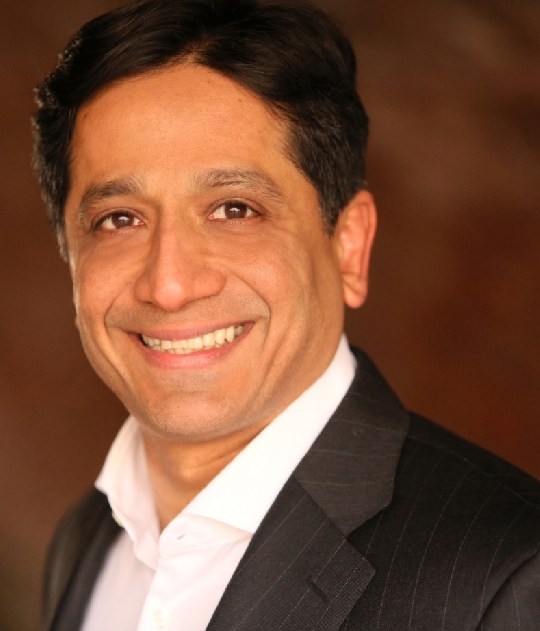
I spend a lot of time thinking about the impact of technology on businesses, governments and society at large, as also about the evolution of economy itself. There is a close connection between economic factors and the environment that builds democratic institutions. History has been replete with instances where societies have been countering centralizing forces. That democracy evolves in the natural course of human interactions, free of any intervention, is a myth in my opinion. In fact it is the other way round – human societies have a natural tendency to centralize, and democracy exists in spite of the centralised forces at play. For democracy to function as it should, there are two pre-conditions: One, there should be a mechanism to ensure that everyone unanimously agrees on what is Truth and Two, the ability to process Truth individually, manifested through the decisions based on the Truth. We have reached a point in the evolution of the internet where diverse mechanisms are trying to identify the Truth amid an information explosion that is beyond the cognitive capacity of most people. This turbulent churn of distorted truths is likely to continue for another two decades or so by which time technology will become even more sophisticated and help us arrive at credible answers. So I am quite optimistic about the distant future but very much concerned about the immediate future. I am not suggesting that a single Truth prevailed prior to the internet era, as media vehicles have been rampantly used for propogandist measures throughout the 20 th century. We are well aware of what happened in Soviet Russia, Germany and Cuba but most of the distortion was establishment-driven and centralised, a ploy by the respective governments to circulate twisted narratives. In the internet era, we are witnessing a distortion of the Truth in a decentralised manner, which is a new phenomenon. Social media has emerged as a potent channel to circulate misinformation among a vulnerable audience who help spread it like wild fire. The new-age technologies are certainly going to amplify the polarisation of societies, but they are not the root cause of a weakening democracy.
In the United States, where I have studied for the most time, there exists an inequality of economic opportunities, and as Dr. Ajai pointed out, the same is the case with India. In the US, it largely stemmed from the decline in manufacturing in some areas, and the rise of the information industries in other areas. Yet, we can’t placing the blame squarely on technology for the weakening of democratic values. Even if the ills of technology were to be addressed, they will not necessarily eliminate the polarization of societies. The polarization will continue for a long time given the predominant economic inequality. I feel with more people accessing technology, economic and governance decisions will get more and more decentralized. The defining triumph of the 20 th century was the failure of centralized mechanisms and the victory of decentralised market forces. But the defining paradoxical theme of the 21 st century will be a reclaiming of centralization by certain forces who will take decisions for all including the deprived through their technological prowess and control over tech platforms. But there are two sides to this phenomenon. In India for instance, we have witnessed a dramatic increase in income and wealth equality in recent times. On the other hand, the digital era has made it possible for more people at the grassroots to own a television, laptop and a mobile phone, as also own a car or travel in it, thanks to Ola and Uber. These amenities are a key dimension of quality of life, which has been unleashed by the large-scale technology proliferation thereby reducing the inequality on a front which may not be well measured in monetary terms.
Celebration of amorality: A South Asian phenomenon
“Unfortunately, South Asia has been a basket case of tragedy of commons. India is no different. For us whether it is executive, legislature, judiciary, citizens or civil society, rules are not something that has to be followed. For us a rule is something from which we need to game. Interestingly, we not only game it, we celebrate it. We are indifferent to other’s problems and we celebrate our amorality. "
Sangeeth Varghese | Founder, LeadCap Ventures & global leadership thinker
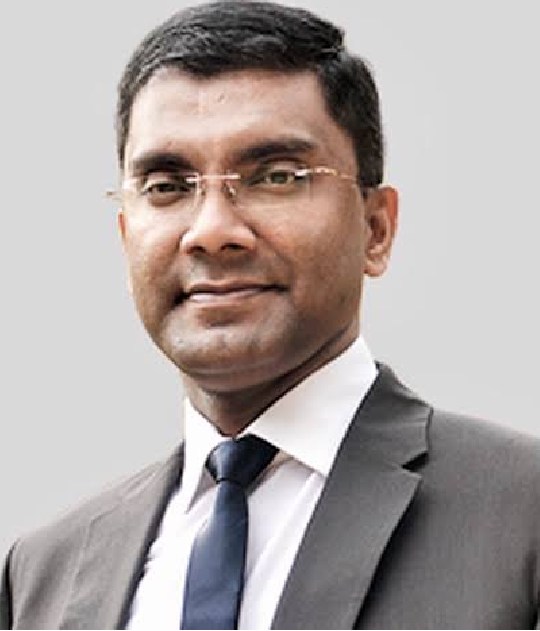
I would like to begin with an interesting theory about the evolution of democracy. I would end with a discourse on what I call basket case of a tragedy of commons specific to South Asian nations. In my book ‘Open Source Leader: The Future of Organizations’ I discuss a theory of how democracy evolved over time. According to my theory, democracy was shaped by thugs, bandits, hooligans and robbers. Very long ago, when humans were just about settling into their agrarian settings, there were these roving bandits would roam about plundering village to village. In the course of what could be termed unintended consequences, the bandits came face to face with two challenges: one, given that they plundered all villages, the villagers had no incentive to save any of the produce. All what was produced was used up - mostly looted by the hooligans and marginally consumed by the villagers, and two, if another set of bandits were to form a group and loot a village, there would be nothing left to plunder for the original hooligan group. As part of a new strategy to counter both challenges, the bandit group decided to stay put in a village in stationary mode. Very soon, the group realised that the 100% plundering is not working at all. So, it was decided to arrive at optimal levels of plundering the village, as also incentivizing it for savings. The plundering eventually took the name of taxes where the stationary bandit became a totalitarian or a monarch. In this avatar, the bandit group was quick to realize that building roads and bridges, providing electricity and sanitation, and other amenities was essential to motivate the villagers to become more productive, as a result of which the bandit group can collect more taxes. As people started producing and trading more, some sections of the society became disproportionately wealthier and financially secure to such an extent that they could fund the totalitarian bandit group on their own in various ways. In return they got waivers which enabled them to become even more wealthier. This privileged section of society was audacious enough to ask the totalitarian bandit group for some permanent concessions in various forms – taxes, imports, exports and the like. Over time, the permanent concessions became laws, laws helped frame the constitution, and the constitution enacted the democracy. Although we end up taking democracy to be a politically correct statement, it is in essence an evolutionary phenomena which has been finetuned by the friction between the ruled and the rulers. This finetuning gives democracy its stability.
The concept of ‘the rule by the people’ democracy evolved around 508 BC, which Abraham Lincoln in his historic address described as ‘of the people, by the people, for the people.’ In a bizarre turn of events in 510 BC, in a nation down the Mediterranean, another concept evolved which was the Republic of Ancient Rome. The seventh monarch of Rome Lucius Tarquinius Superbus who was extremely self-obsessed and arrogant. The monarch was plundering the aristocrats left right and centre and even raped some of their women. As things came to a head, the monarch was expelled in a political revolution and the citizens took over the kingdom to form the Roman Republic. The use of the word Republic implied that every citizen including the rulers and the aristocrats will be governed by the same laws. So, we had a democracy and a republic with similar forms and functions of governance in two different geographies, both serving as the two legs of the stool on which democracy stands tall, where the law is exactly the same for everybody.
I feel India is a unique example in the basket case of South Asian countries. Among all other countries – Pakistan, Afghanistan, Sri Lanka, Myanmar, or Mauritius: every single of them is a failed state, and India is the only example of a successful democratic state. Being populous, the other south Asian regions moved towards mayhem and disorder and competing for the use of scarce resources.
Talking of the tragedy of commons, where supposedly rational individual behaviour has collective irrational consequences. Take the example of the traffic light. Form an individual perspective, disregarding the traffic light is beneficial to reach home or office as early as possible. If scores of individuals subscribe to this argument, the consequences are worse, as everyone ends up reaching the destination later than usual. Unfortunately, South Asia has been a basket case of the tragedy of commons. India is no different. For us, rules are meant to be broken, something that we need to game. Worse, we not only game the rules, we celebrate our anarchy as the wisest thing to do. We are indifferent to others’ problems and knowingly and unknowingly proud of our amorality, our jugaad, our circumvention of rules.
Lastly, to quote Prof. Amartya Den, how does one judge a democracy? Democracies have an incentive to avert death and famines, so no large-scale deaths should never happen in a democracy. if we see instances of large scale deaths and destruction, it would imply that the democracy is not fully functional in the said region.
India needs political reforms ahead of other reforms
“Political parties in India are not internally democratic; neither accountable nor transparent. How can they be expected to translate democracy into the country’s governance? Also, the rule of law is erratic in India and is violated with impunity. And, liberal values in terms of human rights are not deeply embedded in our democracy. "
Major General Anil Verma (Retd.), Head, Association for Democratic Reforms - India
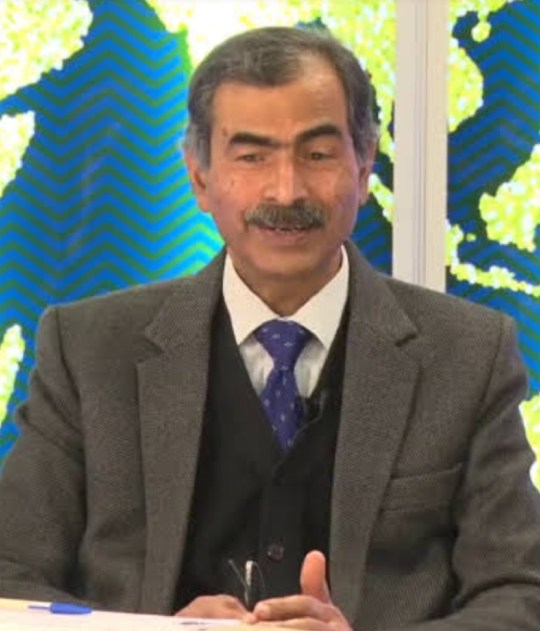
My focus for today’s address is India and the problems of money and muscle power plaguing the Indian political system. Freedom House in their report has classified India as a partly free democracy, due to a multiyear pattern of rising violence and discriminatory policies and a crackdown on expressions of dissent by the media, academics, civil society groups, and protesters. V-Dem has downgraded India from 'world's largest democracy' to 'electoral autocracy' and now grouped with countries like Hungary and Turkey. Another report by the US Commission on International Religious Freedom has urged the world to put India as one of the CPCs – Countries of Particular Concern – in the context of the growing violation of religious freedom in our country.
The Indian constitution upholds social, economic and political justice; liberty of thought, expression, belief, faith and worship; equality of opportunities; and dignity of all individuals and the unity and integrity of the nation.
How are we faring on the crucial aspects of democracy?
The first ingredient of democracy is electoral representation. Unlike popular perception, this is not just about having regular elections, although in India, this five to ten percent component of the whole democracy dynamic is hailed as the festival of democracy. More than elections, serious political competition is an essential ingredient of democracy. Second ingredient comprises the procedures of accountability in the day to day administration within the overarching constitutional framework, and the last ingredient is the respect for human rights. On the last mentioned, various international reports have been constantly downgrading India. On the EIU democracy index, India has fallen to the 53 rd place out of 167 countries and now in the category of flawed democracy. On the hunger index, we are ranked below Pakistan, Bangladesh and Nepal. 14 percent of our population is undernourished.
ADR conducted three major surveys comprising 2.5 lakh respondents just prior to the general elections. Among the top demands of common voters were job creation, education, health, women safety and environment protection. On each of these parameters, the respondents rated the performance of most MPs and MLAs across 535 constituencies as below par.
In the 2019 general elections, India saw a voting percentage of 67% and a party with a complete majority for the first time in several decades. So, the electoral representation was certainly very high and all types of voters participated in the election process, especially the poor. The political competition was also very strong with around 35 to 40 parties in the fray. However, the political parties themselves are not internally democratic. Most of them are dynastic. The rule of law is rather erratic in India. Many politicians and businessmen violate the spirit and the letter of the law with absolute impunity. Obsolete colonial laws are still in vogue, and these are abused by the authorities to suppress dissent. Police and bureaucracy have become subservient to the party in power. All raids happen at the doors of the opposition parties. Freedom of expression, whether it is in speech or through books and films is heavily suppressed. The liberal values with respect to individual rights are not deeply embedded in the Indian system. People elect candidates who don’t even pretend to subscribe to liberal values.
In the current Lok Sabha, 43% of the members of the parliament have got criminal cases against them which include serious charges rape, kidnapping, and dacoity. 88% of them are billionaires. In a country like ours where 60% of the people are below the poverty line, how can we expect this set of members of parliamentarians to cater to the core issues facing the common man. Will they be interested in attending to the common man, or will they be focused on reaping back returns on the investment made to contest the elections. Most of them enjoy a four to five fold jump in their assets post winning the elections.
India spends huge amount of money on elections. Nobody's denying that money's not important. Parties have to spend money, but does that mean we need to spend as much or more than what is spent in the U S elections. Can we afford to do that? Secondly, the electorate has no role in selection of the candidates. Majority are selected from the First-Past-The-Post system. Judiciary has failed to correct the anomalies as political parties find innovative ways to circumvent the directives.
To reiterate what I said earlier, political parties in India are neither inherently democratic, nor accountable or transparent. We can never expect them to translate democracy into the living waters of the country’s governance? The rule of law is erratic in India and violated with impunity. Liberal values and human rights are not deeply embedded into our democratic system. Unless and until we are able to reform the political system, no improvement will be sustainable. You can have judicial reforms, administrative reforms, and police reforms but all of that would fall apart if we don’t have political reforms as everything flows from the politics of the country. We as common citizens must rise to the occasion to collectively create mass awareness especially among the youth of this country on the various issues plaguing our democracy. If they wake up to the realities facing India, an awakening of sorts can pave the way for a healthy and fully functional democracy.
Key global trends affecting democracy in India and elsewhere
“Democracy is the only way to govern a multi-cultural, multi-ethnic and a multi-nation country like India. And, in this there is a great commonality between India and the US. At the same time, we need to take note of some broad global trends impacting democracies of the world, important among them being the emergence of uber nationalist and populist leaders following a majoritarian approach and backlash of globalization leading to a disorderly multi-polar system. "
Professor Waheguru Pal Singh Sandhu, Center of Global Affairs, New York University
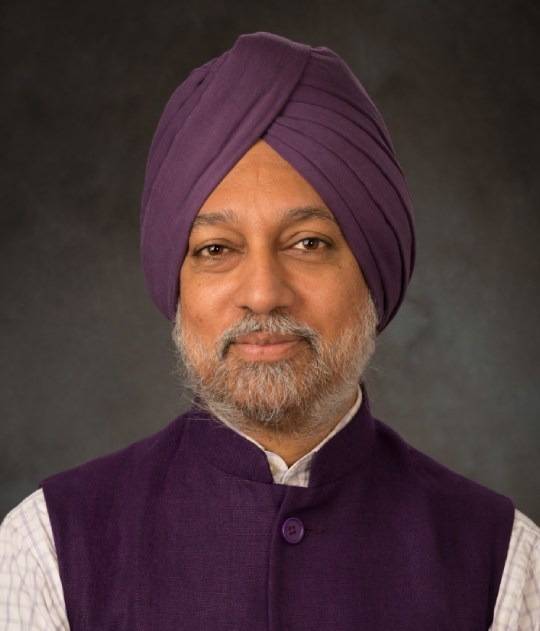
The first question we should all ponder upon is why did the United States choose a democratic model in 1776? And why did India go for a democratic structure and a model in 1947? One argument could be that some of the worst totalitarian systems had been defeated by 1945 and they would really not a model. Having said that, the Soviet union example was very much on we had many Indians enamoured with that model as well. So, why did we go for the democratic model?
I think democracy is the only way to govern a multicultural, multi-ethnic, and arguably even a multi-nation country like India. No other form of governance is likely to work. And this is the one thread of commonality between the United States and India. The second common link is the constitution. Both the countries deliberately opted for constitutional democracy, meaning I mean, creating a framework of applicable laws right across the board. An interesting thing about constitutions is that they are not flawless, which is why we have amendments.
There is this interesting story about the evolutionary challenges of democracy, about a mathematician by the name of Kurt Gödel, who was the colleague of Albert Einstein and Oskar Morgenstern at the at the Institute of advanced studies in Princeton. All of them refugees from Europe, but Einstein and Morgenstern were already American citizens by this time. Gödel went on to develop the incompleteness theorems, which are still considered very radical. He was going off for his citizenship test and given that he was a good scholar, he studied the constitution in great detail. And, he became worried at what he thought was a logical flaw in the US constitution, which could help someone become a fascist dictator.
He shared his reservations with Einstein and Morgenstern and both advised to keep mum about it before the presiding judge. When the judge asked him about the government system in his native Austria, Gödel revealed that it was a democracy to begin with but turned into a dictatorship, thanks to a constitutional flaw. The judge said nothing like that would ever happen in the US and Gödel could not stop himself from sharing his mind. He says, oh, it can happen here and I can prove it.’ The judge cut him short, and since then no one ever knew what Gödel had to say, and hence the lost explanation is now known as the Goodell loophole.
The point I'm making here is that constitution is only as good as its operation. Here I would quote well-known jurist and constitutionalist Nani Palkhiwala, who said: ‘India has a first rate constitution, but a third rate polity.’ How we use the constitution in operation is extremely important. We must explore deep into the reasons why our political system is plagued with problems like criminalization and suspect backgrounds of the political leaders. Why does the very intelligent Indian electorate vote for people with criminal records. I want to recommend the book ‘When Crime pays’ by Milan Vaishnav. He points out that the very fact that the Indian political system is unable to deliver the goods politically, people with money and muscle power come into the picture. This is not to say that US is any better. The polity in the United States is equally messy or ridden with money, but it's better organized through the lobby system.
Let us now look at the vulnerable areas. One weak area, on which every political party has danced around, is election finance. The second issue is whether we should continue with the First-Past-The-Post system in the 21st century especially when many other democracies in other countries, particularly in Europe, actually have a more proportional representation. Then there is this urban-rural divide; when the voter turnout in rural areas is significant, that in the urban areas has been disappointing. In my opinion, the middle class is actually failing Indian democracy.
I'm going to end with a gist of few broad global trends that are impacting democracy, not just in India, but across the globe.
The first has really been the emergence of over-nationalist populist leaders who are following in many cases a majoritarian approach which become highly problematic in multicultural and multi-ethnic countries like India. Second, there is this backlash to globalization happening, largely due to the growing divide between the haves and the have nots which in turn is leading to a disorderly multipolar system, not just at the global level, but also at the domestic level. Thirdly, Technology has been both empowering and also disenfranchising which being a very critical component will demand better solutions to make it less paradoxical. Lastly, propaganda has always been part of any kind of political system, 24/7 fake and fabricated news is another area of concern. Whether we need to regulate it, if yes, do we entrust the job to, should we leave it to the suspect stakeholders in the parliament, should we ask the technocrats, or do we need to initiate some other kind of a dialogue. This is very important as we're very much in a Post-truth kind of scenario. We need to begin the introspection, not from the top down, but from the bottom up. And which is why I'm happy to note the work of Antardhwani in taking this from the local level to the state, national and global levels, rather than the other way around. That I believe is the way forward.